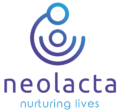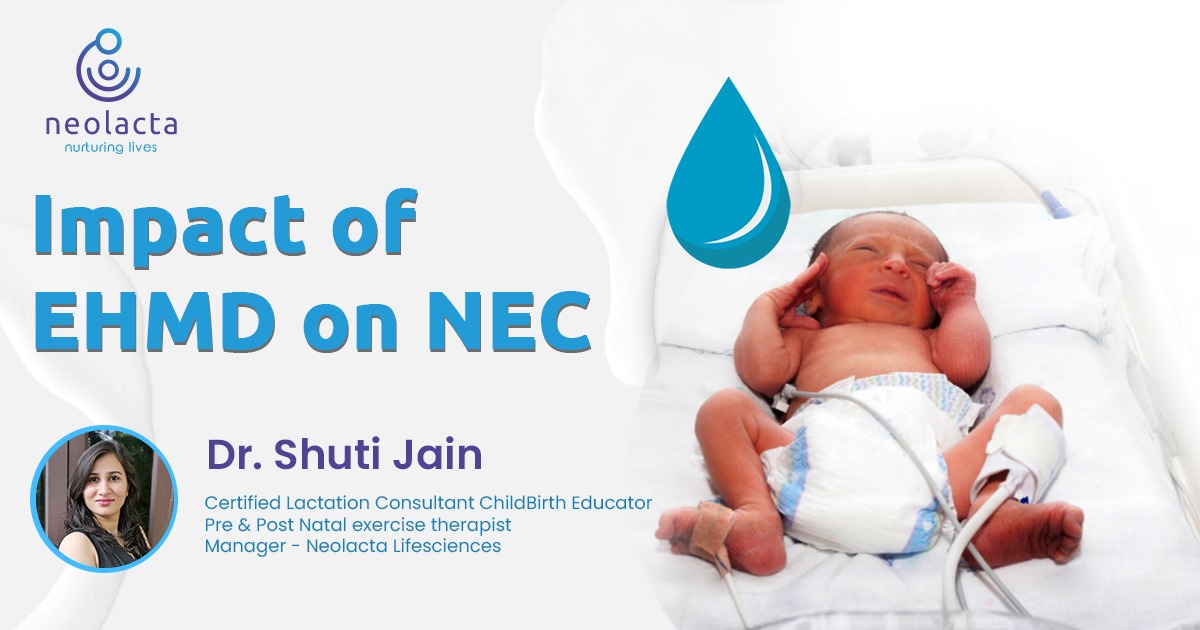An Exclusively Human Milk Diet: Reducing the Incidence of Necrotizing Enterocolitis in Premature Infants
Introduction
Premature Infants face numerous challenges upon entering the world, and one of the most serious complications they may encounter is necrotizing enterocolitis (NEC). However, recent research has highlighted the potential benefits of an exclusively human milk diet (EHMD) in reducing the incidence of NEC.
In this blog post, we will discuss the concept of EHMD, explore the link between NEC and premature infants, examine the evidence supporting EHMD’s reduction of NEC, discuss challenges in implementing EHMD, emphasize the importance of parental education and support, and explore future directions for research and practice.
What is an Exclusively Human Milk Diet (EHMD)?
An Exclusive Human Milk Diet (EHMD) refers to a dietary regimen that is exclusively composed of human milk, obtained through direct breastfeeding or expressed breast milk, which could be the mother’s own milk or donor human milk. Notably, EHMD excludes the supplementation of formula or alternative nutritional sources. By adhering to EHMD, premature infants receive essential nutrients, bioactive factors, and protective components vital for their overall health and developmental needs.
Human milk offers numerous advantages for premature infants, including:
- Optimal Nutrition: Human Milk offers an unparalleled composition, providing an ideal balance of proteins, fats, carbohydrates, and essential nutrients for optimal growth and comprehensive development in premature infants.
- Protection against Infections: The presence of antibodies, immune cells, and diverse bioactive components in human milk serves as a powerful defense mechanism, helping to safeguard premature infants against infections and fortifying their developing immune system
- Enhanced Gut Health: Human milk plays a vital role in fostering the proliferation of beneficial gut bacteria, reducing the risk of intestinal inflammation, and facilitating the maturation of a robust intestinal barrier, thereby promoting optimal gut health in premature infants.
By harnessing the power of human milk, healthcare professionals can provide premature infants with a multitude of benefits, ensuring their nourishment, safeguarding their health, and nurturing their overall well-being.
The Link Between Necrotizing Enterocolitis (NEC) and Premature Infants
Necrotizing enterocolitis (NEC) is a devastating condition characterized by inflammation and tissue damage in the intestine, primarily affecting premature infants. The exact cause of NEC remains unclear, but several factors contribute to its development.
NEC and its impact on premature infants:
NEC involves inflammation and tissue damage in the intestinal tract, resulting in the disruption of the intestinal barrier and potential systemic infection. The condition leads to severe complications, such as intestinal perforation, sepsis, and long-term gastrointestinal issues. The susceptibility of premature infants to NEC is due to their immature digestive and immune systems, which render them more vulnerable to its development.
Multiple population-based studies, including large cohort studies, have documented the incidence of NEC which ranges from 2% to 13% in preterm and Very Low Birth Weight (VLBW) infants. These studies provide valuable insights into the prevalence and impact of NEC within the premature infant population.
Various factors contribute to the risk of NEC, including prematurity, formula feeding, intestinal ischemia, infection, and compromised immune function. Understanding these risk factors is crucial for implementing effective preventive strategies.
Research has shown a significant reduction in NEC incidence among premature infants who receive Exclusive Human Milk Diet (EHMD) compared to those receiving formula or mixed feeding regimens. These findings emphasize the critical role of human milk in NEC prevention, underscoring the importance of providing premature infants with optimal nutrition through human milk.
How Human Milk Can Reduce NEC Risk
Human milk plays a pivotal role in reducing the risk of necrotizing enterocolitis (NEC) through the presence of multitude of beneficial components. These components include growth factors, immunoglobulins, anti-inflammatory agents, prebiotics, and probiotics. Collectively, these factors enhance the maturation of the gut, provide protection against harmful pathogens, reduce inflammation, and support the establishment of a healthy intestinal environment.
Comparison of outcomes between EHMD and non-EHMD
Studies have consistently demonstrated that premature infants who receive an exclusive human milk diet(EHMD) experience additional benefits compared to those on non-EHMD diets. These benefits include improved growth, decreased length of hospital stay, reduced risk of sepsis, and enhanced neurodevelopmental outcomes. The utilization of EHMD proves advantageous in optimizing the care and outcomes of premature infants. t.
While providing premature infants with an exclusively human milk diet (EHMD) is crucial for their overall care and well-being, it does pose specific challenges. These challenges may involve ensuring consistent availability and accessibility of human milk and addressing potential barriers to implementation. Overcoming these challenges is vital to ensure that premature infants receive the optimal benefits of an EHMD.
Feeding Challenges with Premature Infants on an EHMD
Premature infants often face unique feeding challenges, including difficulties with latching, immature sucking reflexes, and limited oral motor skills. These challenges can impact their ability to effectively breastfeed.-feed. Specialized feeding techniques, such as paced bottle feeding or alternative feeding methods like finger feeding or tube feeding, may be necessary to support their feeding journey. Close collaboration among healthcare providers, lactation consultants, and parents is essential to address these challenges and ensure adequate nutrition for these premature infants.
Obtaining and utilizing human milk for premature infants may involve financial considerations. The procurement of donor milk or the investment in breast milk storage equipment, such as breast pumps and storage containers, can incur costs. However, it is vital to recognize that feeding premature infants with human milk, whether the mother’s own milk or donor milk, reduces the risk of necrotizing enterocolitis (NEC) compared to formula feeding. Additionally, preterm infants fed Donor Human Milk(DHM) have shown greater feeding tolerance than those fed formula.
The Significance of Parental Education and Support
Parental education plays a pivotal role in supporting the implementation of an Exclusive Human Milk Diet (EHMD) and optimizing the health outcomes for premature infants. Educating parents about the numerous benefits of an EHMD, including reduced risks of necrotizing enterocolitis( NEC), enhanced growth, and improved neurodevelopment, empowers them to make well-informed decisions and actively participate in their infant’s feeding journey.
Parental support, both emotional and practical, plays a crucial role in establishing a nurturing environment that promotes successful breastfeeding or the use of donor human milk. Resources such as lactation consultants, support groups, and online communities can provide valuable information, guidance, and a network of support for parents as they navigate the unique challenges and requirements of feeding their premature infants on an Exclusive Human Milk Diet (EHMD)
Resources and Support for Parents
Various resources are available to aid parents in obtaining and effectively utilizing human milk for their premature infants. Human milk banks play a crucial role in the collection, processing, and distribution of donor human milk, ensuring stringent safety and quality control measures are upheld to safeguard the health of the recipients. These banks serve as indispensable sources for acquiring safe and beneficial human milk.
Lactation consultants offer personalized guidance, addressing breastfeeding concerns and providing assistance with pumping techniques and proper milk storage. Their expertise helps parents overcome breastfeeding challenges and ensures optimal milk production and preservation.
Online platforms, including breastfeeding support groups and forums, create valuable opportunities for parents to connect with others who share similar experiences. These platforms foster a sense of community, allowing parents to exchange insights, seek advice and derive support from individuals who have traversed comparable journeys.
By utilizing these resources, parents can access vital knowledge, practical guidance, and emotional support in their pursuit of providing an Exclusive Human Milk Diet (EHMD) to their premature infants. The combined efforts of human milk banks, lactation consultants, and online support platforms contribute to a comprehensive support system for parents, empowering them to make informed decisions and establish a nurturing environment for their infants’ well-being.
Advancing Neonatology: Unveiling the Potential of Exclusive Human Milk Diet ( EHMD) for NICU Infants.
In the field of neonatology, it is important to investigate the potential benefits of implementing an exclusive Human Milk Diet (EHMD) for NICU babies, going beyond the scope of NEC prevention. By broadening our research and practice, we can uncover a range of advantages that EHMD offers for these vulnerable infants.
Areas of exploration should include:
- Comprehensive Health Benefits: Investigating the potential benefits of EHMD on various aspects of infant health, including neurodevelopmental outcomes, immune function, gastrointestinal disorders, and overall long-term well-being.
- Enhanced Nutritional Optimization: Focus on optimizing the composition and fortification of human milk specifically tailored to meet the unique nutritional needs of preterm infants, ensuring their optimal growth and development.
- Maximizing the Access and Delivery: Explore the most effective methods of delivering, storing, and handling human milk in different healthcare settings, ensuring its accessibility and maximizing the benefits for NICU babies
- Integration into Neonatal Care: Consideration integrating the Early Human Milk Diet(EHMD) into standard neonatal care practice by identifying and addressing barriers to adoption, developing standardized procedures, and collaborating with healthcare providers and policymakers to facilitate its seamless integration.
By exploring these avenues, the neonatology field can unlock the potential of the Exclusive Human Milk Diet (EHMD), revolutionizing the care provided for NICU infants. Through research and practice, we can pave the way for improved health outcomes and brighter futures for these delicate little ones.
Revolutionizing NEC Prevention: Unleashing the Power of Exclusive Human Milk-Based Diet (EHMD) for Premature Infants
The Implementation of the Exclusive Human Milk Diet ( EHMD) for premature infants poses challenges related to accessibility, feeding, cost, and insurance coverage. Nevertheless, with dedicated parental education and robust support systems, these hurdles can be overcome. By harnessing the availability of resources and support networks, parents can provide optimal nutrition to their premature infants, whether through breastfeeding or donor milk.
Embracing an Exclusive Human Milk Diet (EHMD) and maximizing the utilization of the available resources, we have the potential to achieve a significant reduction in NEC incidence among premature infants. Through continuous parental education and unwavering support, we can pave the way for a brighter and healthier future for these vulnerable individuals. Together, let’s embrace the transformative potential of the Early Human Milk Diet (EHMD) and strive toward a world where Necrotizing enterocolitis (NEC) becomes a thing of the past.
References
- Guthrie SO, Gordon P V, Thomas V, Thorp JA, Peabody J, Clark RH. Necrotizing enterocolitis among neonates in the United States. J Perinatol. 2003;23(4):278–285. Available from: http://eutils.ncbi.nlm.nih.
gov/entrez/eutils/elink.fcgi? dbfrom=pubmed&id=12774133& retmode=ref&cmd=prlinks% 5Cnpapers3://publication/doi/ 10.1038/sj.jp.7210892. - Llanos AR, Moss ME, Pinzòn MC, Dye T, Sinkin RA, Kendig JW. Epidemiology of neonatal necrotizing enterocolitis: a population-based study. Paediatr Perinat Epidemiol. 2002;16(4):342–349. doi: 10.1046/j.1365-3016.2002.
00445.x. - Luig M, Lui K. NSW & ACT NICUS Group. Epidemiology of necrotizing enterocolitis–Part I: Changing regional trends in extremely preterm infants over 14 years. J Paediatr Child Health. 2005;41(4):169–173. doi: 10.1111/j.1440-1754.2005.
00582.x. - Luig M, Lui K. NSW & ACT NICUS Group. Epidemiology of necrotizing enterocolitis–Part II: Risks and susceptibility of premature infants during the surfactant era: a regional study. J Paediatr Child Health. 2005;41(4):174–179. doi: 10.1111/j.1440-1754.2005.
00583.x. - Thompson A, Bizzarro M, Yu S, Diefenbach K, Simpson BJ, Moss RL. Risk factors for necrotizing enterocolitis totalis: a case–control study. J Perinatol 2011;31(11):730–738. Available from: http://www.nature.com/
doifinder/10.1038/jp.2011.18. - ANICE JOY Clin-ical impact of using a human milk-based for-tifier in a preterm infant demonstrating in-tolerance to bovine milk-based fortifiers – a case report.. Journal of Medical Case Reports and Reviews. 2021;935−938. https://doi.org/ 10.52845/ JMCRR/2021/4-7-2


